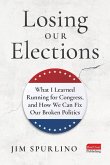The U.S. faces a host of new threats to our vital interests, including proliferation of cruise missiles, weapons of mass destruction, ballistic missile technology, questions about Russiäs control of strategic nuclear forces, and an increasing tendency for terrorists to conduct mass casualty attacks. These new threats require a comprehensive, deterrence-oriented homeland defense program. Lessons learned from a study of U.S. homeland defense history will provide a basis for recommending improvements to homeland defense policy and strategy. Homeland defense is a basic function of our government, and has been since the colonial era. Over 100 years before our Constitution established as a fundamental responsibility of government to "provide for the common defense," American colonial leaders recognized the need for a homeland defense capability and established colonial militias to fight both internal and external threats. As the U.S. grew in economic and political power, our homeland defense needs changed, as well. By the 20th century, homeland defense encompassed not only defense of U.S. territory and population, but overseas possessions, access to critical lines of communication, natural resources, and trade. The Cold War again qualitatively and quantitatively changed the concept of homeland defense. The U.S. had to defend itself against the Soviet Union¿s global hegemonic ambitions and growing nuclear arsenal, so homeland defense required much broader measures than ever before. This paper discusses the development of U.S. homeland defense from the colonial era to the present and analyzes homeland defense policy failures and successes. Analysis shows common problems with homeland defense policy: failure to develop an overarching, viable homeland defense strategy, failure to provide appropriate military resources to meet strategic requirements, and failure to understand and prepare for emerging threats. Analysis is used as a basis for suggesting improvements to ho
Hinweis: Dieser Artikel kann nur an eine deutsche Lieferadresse ausgeliefert werden.
Hinweis: Dieser Artikel kann nur an eine deutsche Lieferadresse ausgeliefert werden.








